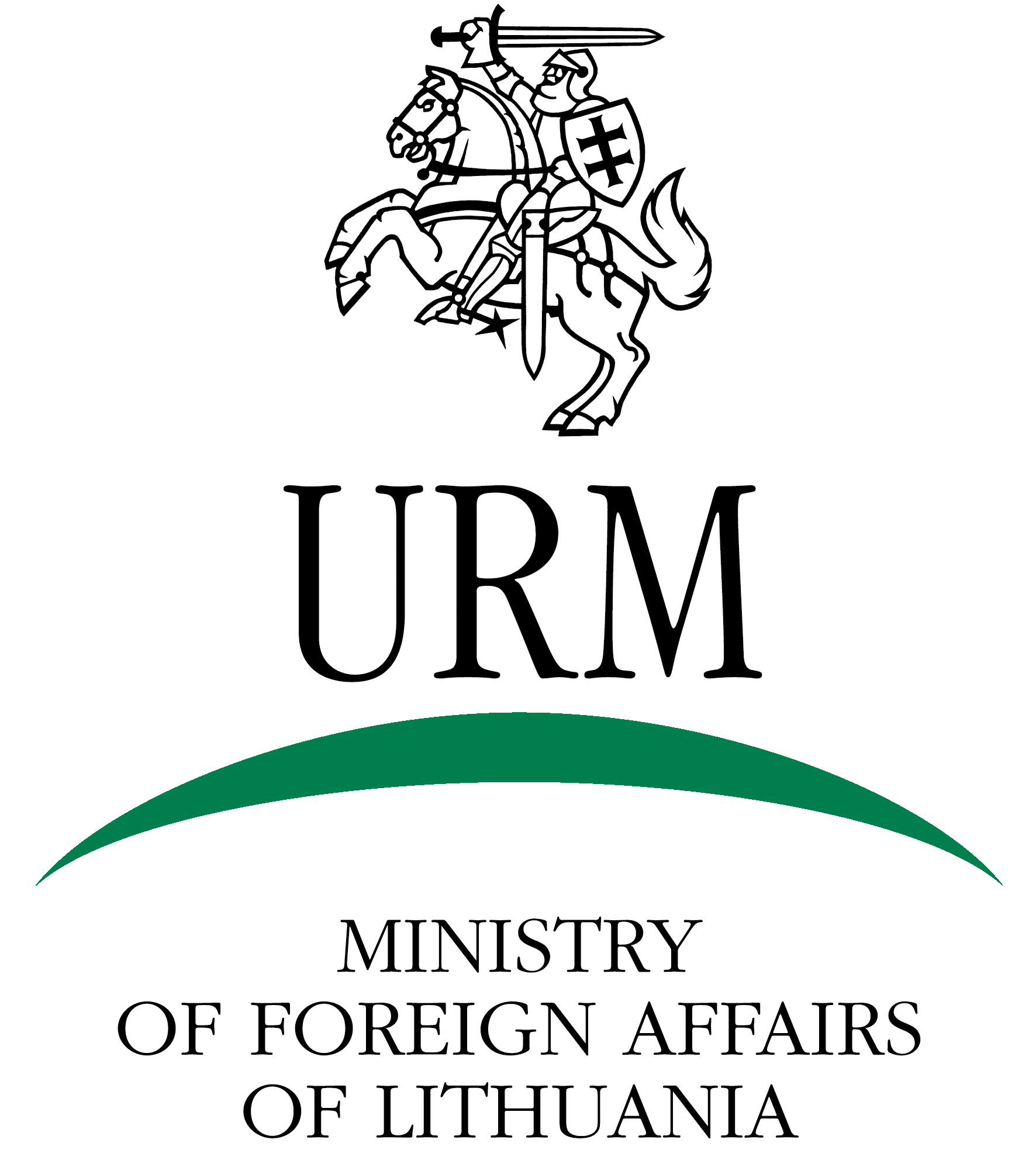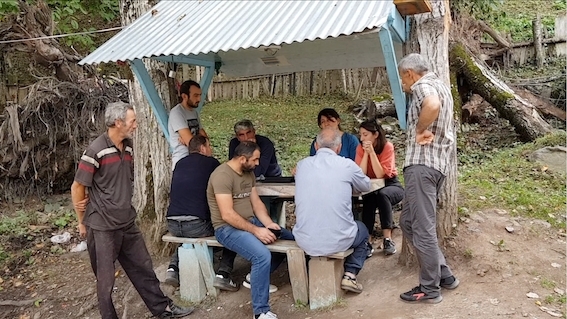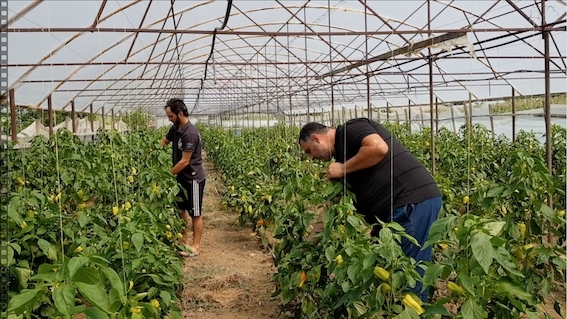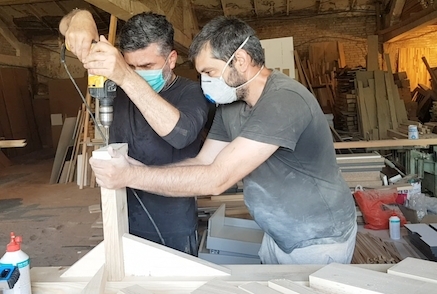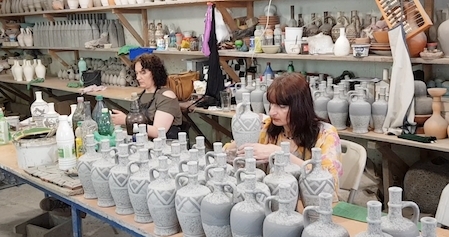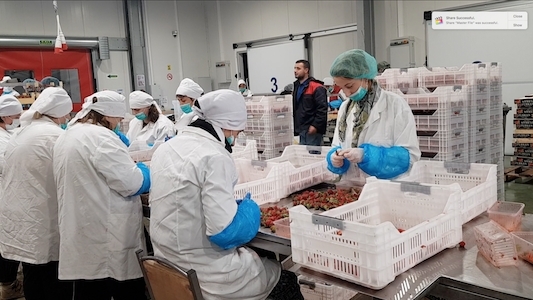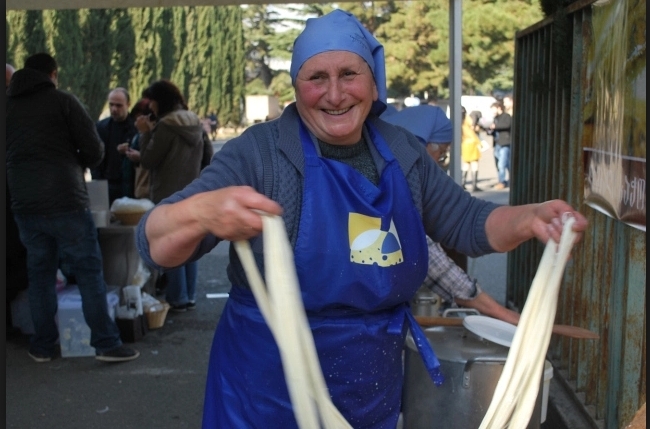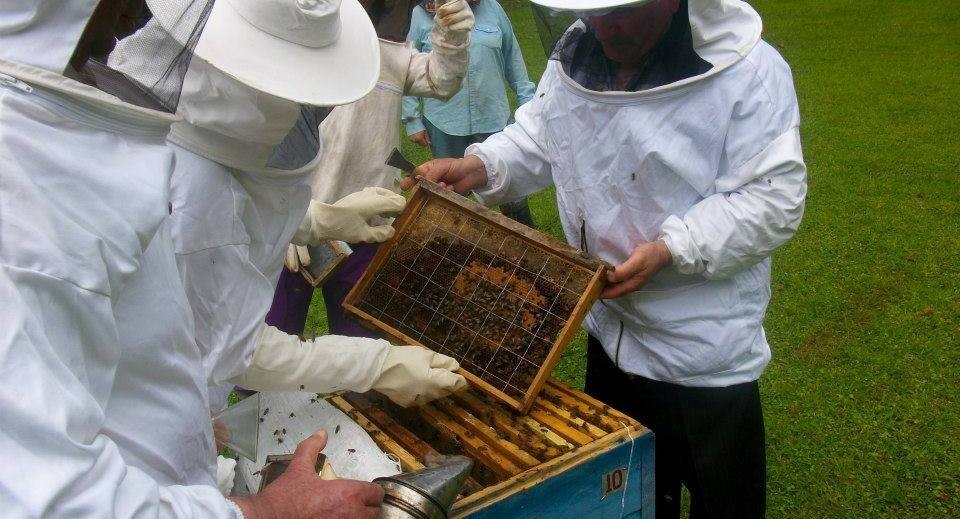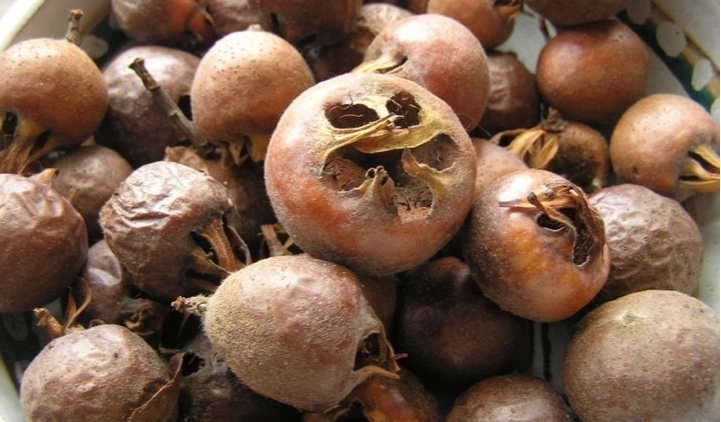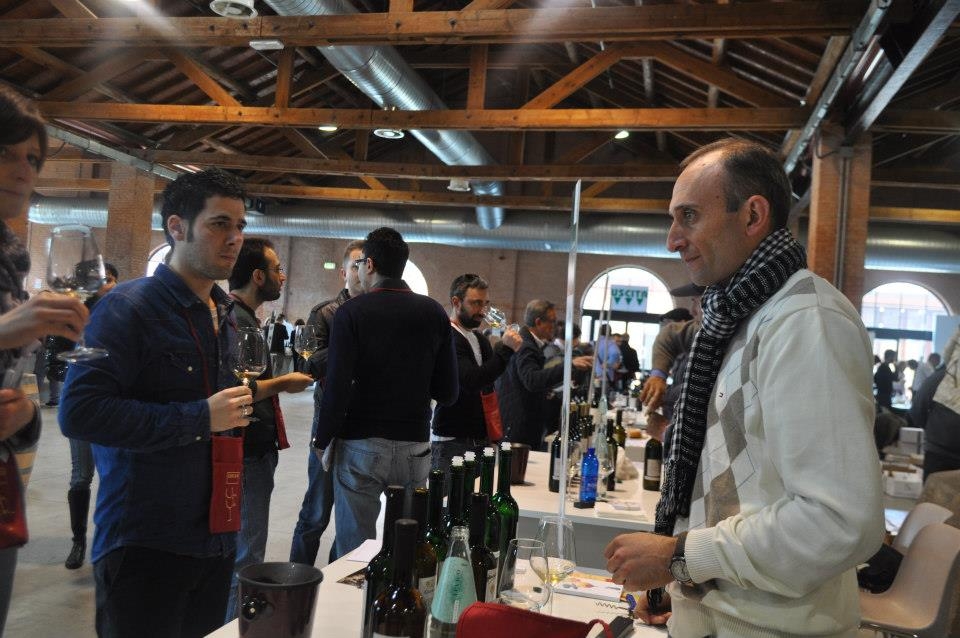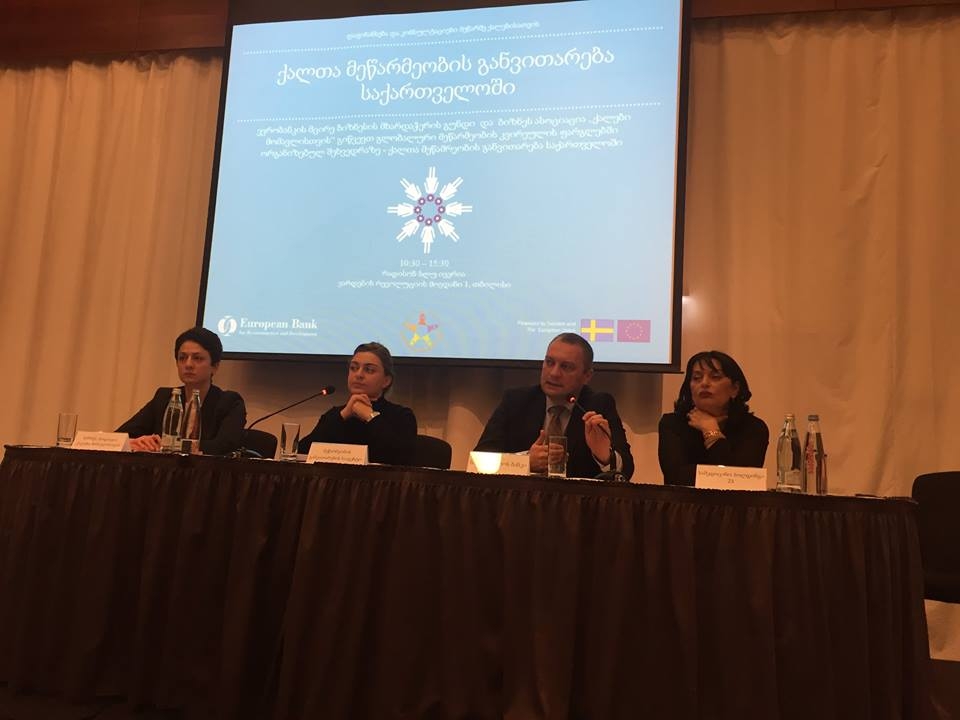Whether there will be wood raw materials for furniture production under the new Forest Code

"There will be a much larger assortment of wood for entrepreneurs in the “Business Yards "”
The Parliament of Georgia adopted the Forest Code in May 2020. The new code should ensure the rational use of forest resources, its protection and restoration. In addition, the efficient use of the economic potential of the forest should be promoted.
The new code will abolish wood cutting and the purchase of firewood, and other wood for commercial purposes will be possible only from "business yards". A furniture cluster is waiting for the formation of a "business yard", as it needs a stable wood resources for production. Karlo Amirgulashvili, Head of the Department of Biodiversity and Forestry, talks to EUGEORGIA.INFO about the availability of wood material for furniture production and other details of the new Forest Code:
- The main purpose of the Code is to ensure that the economic, social and ecological functions of the forests of Georgia are properly used and maintained. According to the new code, forest farms that were abolished after 1999, will be restored. Because over the years we were completely dependent on social wood cutting, firewood was available for the population and they did not have access to the timber. The new Forest Code should phase out social logging, which was an ugly form.Within the new code social wood cutting, which was not a good practice, will be abolished step by step.
Georgia does not have exploitation forests and cannot become an exporter, but it can meet national needs, provide recreation, and develop ecotourism. We should consider forest not only as firewood and timber, but also as the greatest value of the country. Georgian forests have the greatest potential in terms of recreation and ecotourism. Proper forest management will protect its biodiversity, reduce natural disasters, such as erosion, floods, which happen very often. Sustainable forest management means that no more should be cut than the natural growth of the tree.
This Code should facilitate the return of qualified specialists in the forestry field. At least one specialist should be worked per 3500 hectares. This means that the number of employees in this sector will increase, because the arrangement of farms needs much more qualified specialists. These measures will strengthen the sector and let the people to stay in the regions. Working in the forest is a risky, especially in Georgia, where we have steep slopes. That is why there should be qualified people, forestry specialists, workers who know how to cut wood and how to store it.
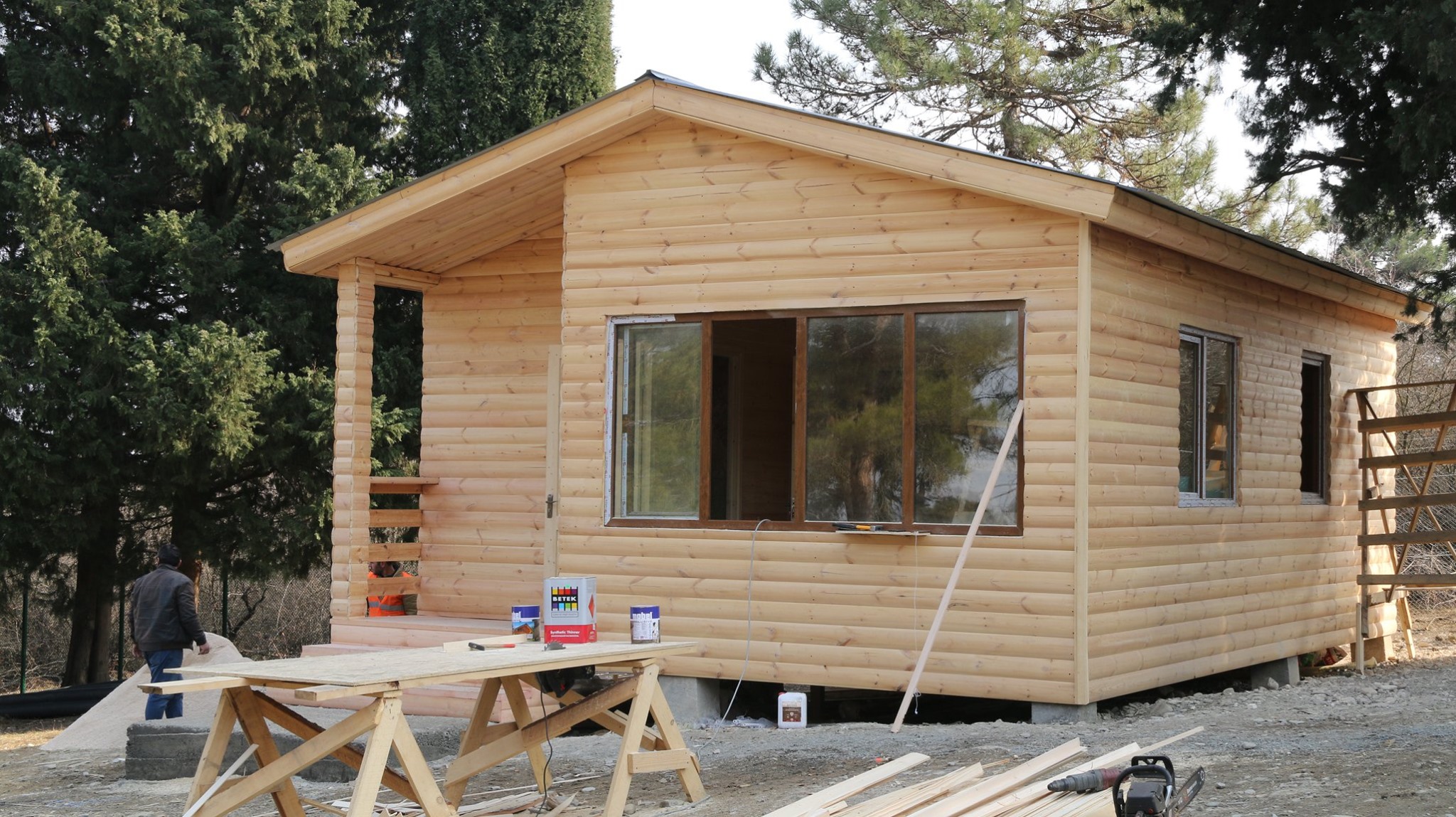
Photo: Business Yeard
- The new code stipulates that a "business yard" should be arranged in all regions, from where the material will be sold. In what form will the "business yard" be established?
- About 10 "business yards" have already been launched in different municipalities. There will be 20 Business yards by the end of the year. If until now, within the framework of social cutting, we issued a ticket for the citizen and he/she was responsible for taking out the wood, under the new conditions he/she can go to the "business yard" in his/her municipality and buy second-hand timber, firewood or yard fencing wood with desired range and quality.
The forestry agency conductsthe accounting of inventory to define what property it owns, then determines how many trees can be cut down. The specialist then cuts it, transfers it to the "business yard" and sorts it into materials, semi-materials, firewood and biomass. We want to promote the sale of dry firewood because the population used to consume wet firewood for years, and 40% of the energy value of the resource was lost.
There will be not only wood material in the "business yard". A point can be arranged in the area, from where tourism will be operated, berries will be picked. By January 1, 2023, the country should fully switch to this scheme and social cutting should be abolished. This means that from 2023 only forest specialists will be allowed to enter the forest and the population will be able to reach forest resources only through the "business yard".
Grass, leaves, blueberries, medlar, staphilea can be collected in the forest. These products is sold both domestically and abroad. The use of such non-timber resources becomes commercially available from January 1, 2021. Individuals who have previously engaged in this activity illegally will be able to carry out this business legitimately. They can pick mushrooms for personal use, for example, but if they want to sell or export, they have to get permission from the forest agency. The fee for the permission will be determined by January 1.
- The furniture sector has high hopes for the creation of "business yards", because currently they have a problem with purchasing quality wood materials. How will forest farms solve this problem?
-Organized farm, whose tool will be a "business yard", will change the economic and ecological situation for the better. Small entrepreneurs today can only buy timber at auction. Auctions will remain, but there will be a much larger assortment of wood resources for entrepreneurs in the “business yards”. This will positively affect small businesses and small-scale production in regions such as parquet production. In the conditions of bad social cutting practices, which were caused by the energy crisis of the 90s, the wood materials needed for furniture production were used as a firewood. Actual firewood was left in the forest. This wood waste, on the one hand, was destroyed and on the other hand, created the danger of forest fires.
- How will wood be sold from the "business yard"?
- Sales will be made directly, however, auctions will also be held. There will be different types of lots for all types of applicants, large or small entrepreneurs, to participate. A decree is being prepared to impose restrictions on the production of certain types of firewood, so that one or two people will not be able to buy the wood needed for the whole municipality and other citizens will not leave without firewood in winter.
-Who will cut, process and prepare wood as a material?
- This will be done by the Forest Agency and its contractors. These will be companies and individual entrepreneurs, including those who carry out illegal cutting today but have experience in the field. They will be able to be legally employed in the forestry. Everything will be done under the supervision of the Forest Agency. The main goal of this reform is to ensure that outsiders do not operate in the forest and that all processes take place under the supervision of the forest agency.
A potential entrepreneur, in order for his business to be sustainable, must find information in the forestry agency about the amount of resources he can supply to the forestry agency in the “business yard” in the coming years and sign a contract. If the entrepreneur wants a stable supply of the resource, the amounts must be agreed in advance with the agency. This information will be provided by an inventory showing how much wood can be cut down in forest areas for 10 years.
- So, the furniture manufacturer will know how much and what kind of wood material he will find in the "business yard" and how he will buy it ...
- He must find out these issues in the relevant municipality and understand in what form he can buy the wood. It can be purchased through direct sale or participation in an auction. These forms are still under development and will be updated by January 1st.
- Furniture manufacturers say that wood is often sold on the "black market", the quality of which is questionable. Will the Forest Code change this situation?
-This activity is of course illegal and these workshops will not have a quality product either. Difficulties in this area were caused by the licensees, who carried out the whole process themselves. This practice has not brought economic, ecological and social results and, on the contrary, has worsened the forest condition. Under the new code, licenses are cancelled. We assume that in case of illegal use it will decrease gradually. This will help the shadow market to disappear.
- Does the Forest Agency have the information, what is a demand for wood in the country and in case of restrictions on wood cutting, how much the demand from the business will be satisfied?
- Unfortunately, we do not know how much wood we can supply to the market. Until the forest inventory is completed, we cannot even say how many trees we can cut. Inventory is underway in Svaneti, Kakheti., This process has been completed in Borjomi and enough timber for local needs has already been identified.
- Will the creation of "business yards" lead to an increase wood price?
- Recently, brigades operated in the forest have decided to increase prices of wood materials. This was related to the increase in the price of fuel, labor,chainsaw, gasoline or other means. The problem was also that they made only 7 or 15 cubic meters of firewood and left the waste in the forest. Once the organized forest use come into force, 100 or 500 cubic meters of wood can be cut down and fully utilized - as a material, semi-material, firewood and biomass. This will reduce operating costs, which will lead to a decrease of prices.
-If the population, for example, needs pole, should they buy it in the "business yard"?
- Only dried brunches will be allowed to collect for free. Residents can remove branches up to 6 cm in diameter from the forest. Larger wooden poles or logs will be purchased from the "business yard".
- Will forest regeneration or restoration take place in order to save forest resources up to a fixed level?
-This is a very important issue. Georgia's forests have great potential for natural restoration, so it has survived by the current exploitation of the last 30 years. Despite unsystematic cutting, the degradation rate is not big. Good natural renewal of forests is taking place in Svaneti and Tusheti. Under the new code, when forest degradation is observed, for example, as a result of a large-scale fire, it must be assessed immediately, and the forestry agency is obliged to start the forest restoration process no later than 3 to 5 years.
- According to the new code, the forest will be divided into categories. What does it mean?
-This is one of the important news of the Code. Forests will be divided into 4 categories: protected forests, windshield forests, resort-recreational and agricultural. All supervisors will be obliged to properly manage the forest according to its category and function. For example, enormous number of trees should not be cut down in a windshield forest in order to avoid erosion or flooding.
- The most sensational was article of the Forest Code, which provides for the transfer of the forest to the Patriarchate. Why was it necessary to write this in the Code?
-The church-monasteries have not been given anything under the new code. Until now, the government had the right to give an indefinite amount of property to the church, including the forest. The new code restricted this right to the government and the patriarchate, on the contrary. The treaties used by the patriarchate have become annulated. There will be an entry in the new code that the church has no right to claim more than 20 hectares of forest nearby the church. Capital construction is prohibited by law in the forest area, including the construction of a church. Only existing churches and monasteries can request no more than 20 hectares of forest. If there is such a demand from them, it will not affect a large area. This can be no more than 5 thousand hectares out of the total forest area of the country.
The issue of forest transfer to the church will be examined by a special state commission, which will make a decision based on the forest interest and submit it to the government, which will make the final decision. If any of the monasteries is given a forest area, the responsibility for its care and protection will therefore be borne by the owner.
Forests occupy 40% of the total territory of Georgia - 3 million hectares. 98% of it is mountain forest, which is entirely of natural origin. The forest is 100% state-owned and is managed by the Georgian Forestry Agency. Forest in Adjara is managed by Adjara Forest Agency. Part of the forest is managed by the Agency for Protected Areas. There are about 12 thousand hectares of forest under the management of Tbilisi Municipality.
Author: Nona Kvlividze
The article is prepared with the financial support of the Ministry of Foreign Affairs of Lithuania and "Development Cooperation and Democracy Promotion Programme."
